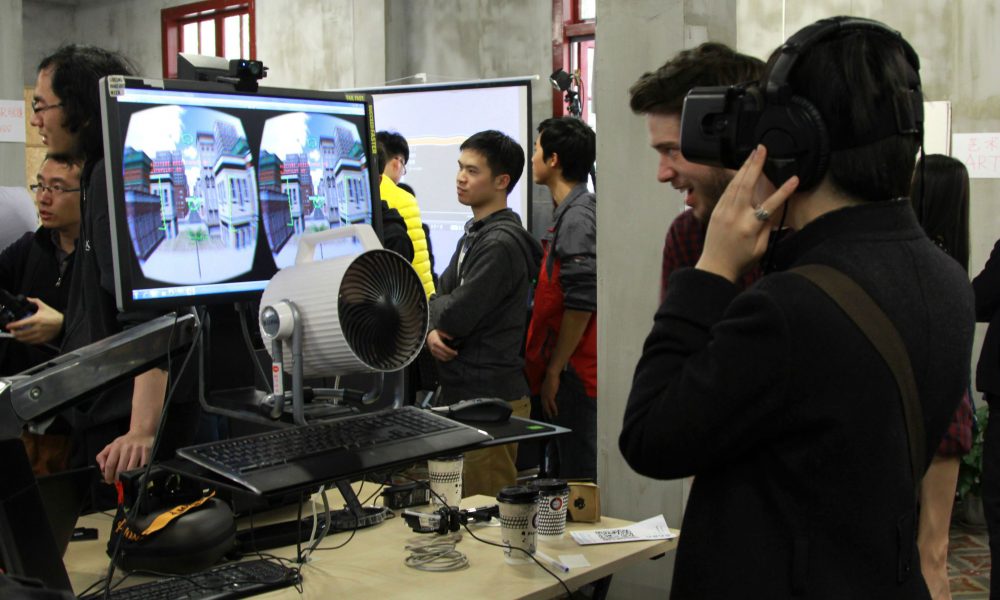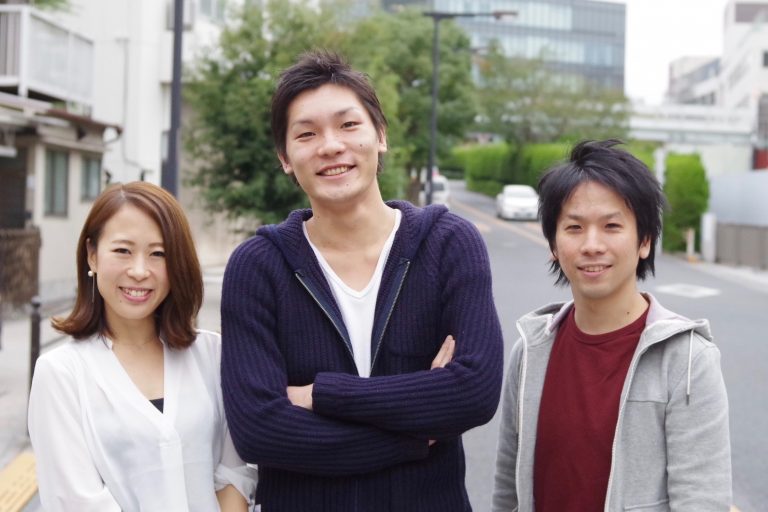Author: vivian
China’s HTC Places US$1.5 Billion Investment Fund In Research Center For Virtual Reality
The Virtual Reality hype continues to grow in China as Taiwan-listed smartphone maker HTC Corporation advances its grip in the sector by creating an RMB 10 billion (about US$1.5 billion) investment fund in a VR research center. This is a sector that the company has taken interest this year when it decided to diversify its range of products through expanding to VR devices amid a declining demand for cell phones in the global market.
On a similar vein, HTC Corporation has previously launched HTC Vive, the company’s first VR device that met the market last year in Beijing. Following this, the company now pursue to sign a strategic partnership with Shenzhen municipal government in China, creating a research center that is meant to boost virtual reality developments.
Based on the partnership agreement, Shenzhen municipal will support HTC to form the China VR Research Institute and promote Virtual Reality development together with the establishment of the US$1.5 Billion Shenzhen VR Industry Fund.
The new investment fund targets to attract enterprises involved in the VR industry, and investment from within China and other countries as well. The new partnership is determined to achieve breakthroughs in the core technologies of sensors, display, graphics, data visualization, human-machine interaction, and other related areas.
It will also create an innovation system in which enterprises, universities, research institutes, and investment organizations can all participate and drive the evolution of the ecosystem together. VR technology applications across various industries, such as healthcare, military, engineering, design, and manufacturing, will be highlighted.
Established by HTC and the Shenzhen Industry Guiding Fund, the Shenzhen VR Investment Fund is visioned to become the world’s largest single VR-focused fund, assisting the development of the VR sector as well as accelerating the growth of related startups.
From June to October this year, HTC assisted the Shenzhen Municipal Science and Technology Innovation Committee in creating the Action Plan for Promoting Technological Innovation and Industry Application in Shenzhen’s VR Industry (2016-2020). This cooperation was touted as instrumental in laying a foundation of collaboration for the future development of VR.
Prior to this, the Taiwan-based consumer electronics firm HTC Corp has also admitted eight new members to the Virtual Reality Venture Capital Alliance (VRVCA) which is a consortium of the world’s top VCs who aim to invest and support. The event is supported by 42 investors members.
“Virtual reality will transform the way we interact with the world. We can see enormous business opportunities arising from this disruptive innovation,” Cher Wang, co-founder and CEO of HTC said.
VR is forecast to be a US$30 billion market by 2020, according to tech M&A advisor Digi-Capital. Henceforth, the company US$10 billion investment would be a third of the industry’s total market size in the next four years.
By Vivian Foo, Unicorn Media
Japan’s Seven Dreamers Laundry-Folding Robot ‘Laundroid’ Secures US$60 Million In Series B Funding Round
After the washing machine and clothes dryer, the year of 2016 finally introduces the world’s first laundry-folding appliance known as Laundroid. Firstly revealed at the Consumer Electronics Show in Las Vegas and Createc Japan in Tokyo this year, the appliance which is roughly the size of a standard refrigerator, has created quite a stir, though not all remarks were positive.
The machine takes up to 4 minutes and 30 seconds to fold a T-shirt, which was for some, not impressive enough. Despite that, Seven Dreamers has still managed to secure a funding of 6 billion yen (around US$60 million) from SBI Investment, in addition to Panasonic and Daiwa House. However, the shareholding ratios and payment date remain undisclosed. Besides, this is only a trial manufacture and the developers are optimistic that the machine’s overall performance can be enhanced through continued modifications and refinements of the robotics functionality.
To date, Laundroid can distinguish four categories of laundry (shirt, pants, skirts and towels). The process is simple and one just has to pull out the drawer at the bottom to throw the crumpled clothes in. Then, the image recognition algorithms will identify the type of clothing it is handling as each item is moved up to the shelves and folded appropriately. The whole operation combines clothing analysis, artificial intelligence (AI), and robotics blend together, as well as a period of 10 years to produce this fully automatic clothes folding machine.
Laundroid is also able to constantly learn and improve its performance as the appliance is connected to the data from the loT network which will be transferred to Seven Dreamers original server which will research on the collective data to provide better customer service. With Laundroid, Seven Dreamers said that an average person can save the 9000 hours which are used to fold their laundry. That is 367 days which can be used for other productive activities, such as binge-watching Netflix with family or friends or cultivate a hobby.
According to the Founder and CEO of Seven Dreamers, Shin Sakane, the reason behind the creation of Laundroid was based on a comment by his wife. As well as the idea to create something never seen before, to be producers of “Things not already in this world”. Apart from Laundroid, the company has two other products which are Nastent, a nasal strip for less snoring sleep and a carbon golf shaft.
However, as much as eliminating one of the tedious chores of mankind can be a great idea, the amount of space needed for Laundroid along with a likely plus-size price tag means that the robot probably won’t be a common fixture in most homes in the years to come. On the other hand, Laundroid might have more of a future for businesses that need to fold a ton of stuff, such as a clothing store, hotel or nursing care facilities.
Seven Dreamers plans to begin Laundroid sales by reservation for their first machine “Laundroid 1” in March 2017.
For more information, please visit https://sevendreamers.com/en/ or take a look at the demonstation of Laundroid via https://youtu.be/FzZSpiqvb1Q
By Vivian Foo, Unicorn Media
Philippines Shakey’s Pizza Parlor Plans For IPO That Will Raise Up To US$113M Receives SEC Approval
Shakey’s Pizza Asia Ventures Inc (SPAVI) is all set to go public listing in the Philippines after the Securities and Exchange Commission (SEC) approved its initial public offering (IPO) of up to P5.5 billion (about US$113 million) last Friday.
The details according to SPAVI’s prospectus with the SEC filed last month offers to sell up to a total of 352 million shares which consist of 202 million existing shares and 104 million new shares with each priced up to P15.58 apiece, to meet excess demand.
SPAVI appointed Deutsche Bank as the sole global coordinator and bookrunner for the IPO, while BDO Capital & Investment Corp and First Metro Investment Corp are appointed to be its joint-lead managers and underwriters.
Shakey’s Pizza Asia Ventures maiden share offering is slated on December 2 to December 8. However, its listing date is tentatively set on December 15.
According to a statement, the IPO proceeds would be used for the expansion of the firm’s in-house commissary, working capital requirements, potential acquisition and repayment of debt,
On a similar vein, Singapore’s sovereign investor GIC is also reportedly planning to sell some of its shares in Shakey’s Pizza Asia Ventures Inc (SPAVI). The Singapore’s sovereign wealth fund has previously partnered with CPGI earlier this year, to acquire a majority of the pizza business from the Prieto family, which continues to hold a minority stake in SPAVI.
The company is majority owned by the Filipino-Chinese Po Family’s conglomerate Century Pacific Group Inc (CPGI), the parent company of local listed Century Pacific Food Inc (CNPF).
The global pizza franchise originally started in the United States in 1954 and later expanded overseas to Canada, Mexico, and Japan, to name a few. The pizzeria came to the Philippines in 1975 and since then has built a network of 177 stores nationwide.
With SPAVI’s share sale finalized next month, this will add to a pipeline of public listings in Philippine Stock Exchange (PSE) joining SBS Philippines Corp. (P1.15 billion); Crown Asia Chemicals Corp. (P222.7 million); Metro Retail Stores Group Inc. (P5.6 billion); and Italpinas Development Corp. (P242 million), despite the volatility in Southeast Asian markets.
For more information, please visit https://www.shakeyspizza.ph/
By Vivian Foo, Unicorn Media
Malaysian Food Delivery Startup ‘Dah Makan’ Is In Talks With Global VCs For Their Next Funding Round
From Nasi Lemak and Roti Canai to the iconic Penang Laksa, Malaysia has a reputation of being a food paradise. It is little wonder that its hottest sector, for both startups and venture capitals, turns out to be the food delivery service.
Currently, online food orders have represented 15 percent of a massive US$70 billion market, and the figure is continuously increasing as consumers are now moving online to do everything, from online bank transactions, shopping and even ordering food for their next meal.
Many food delivery services have rise to fill this demand. Driven by technology, these food delivery services which include The Lean Canteen, The Lunch Club Asia, Chopstick Diner, Naked Lunch Box and The Rebellious Chickpea among some, work to deliver lunch to the busy Malaysian. But one startup stands out among the rest through delivering healthy, foreign options.
“Dah Makan” which in Malay, means “Have you eaten?”, is a Malaysian startup that plans to make daily eating a simple luxury as the company creates healthy gourmet for lunch and dinner which are MSG-free and crafted with the finest ingredients. These cuisines are then packed in a lunch box and delivered to the doorstep within 30 to 45 minutes. With this, healthy eating has become even more convenient and affordable.
But most importantly, the startup described themselves as a “full-stack” food delivery service, which means that they are in control of the whole value chain from menu creation, ingredients sourcing, production delivery as well as customer care. This translates into maintained quality as their orders continue to grow. Besides, Dah Makan also does not compromise on the taste buds as the kitchen is helmed by Executive Chef Shamsul Hashim, who previously worked in Sheraton and Hilton.
Co-founded by Jessica Li, Johnathan Weins and Christian Edelmann, the previous two being ex-FoodPanda team members. It was in December 2014, that the team bootstrapped their startup and tested their idea by preparing the meals out of their own apartment for friends. The venture was self-funded with only US$40,000.
In March 2015, The healthy food delivery startup has its first angel seed round, raising US$80,000 (RM340,184) from two angel investors over. Since then, the startup has used the funds to improve and expand their services where it has grown to cover around 80 percent of the Klang valley region and develop the Dah Makan’s mobile app. The funding also allowed them to relocate into a building with a bigger central kitchen, and other processes like hiring, marketing and developing their logistics.
“We are right now finalizing a larger round with several global VCs with extensive experience in e-commerce and consumer brands. It’s very important to have the right investors on board as they can have a significant influence on the future of a company,” founder and CEO of Dah Makan, Jonathan Weins told DealStreetAsia in an interview.
Although currently, the team only delivers to all major business areas in KL and selected residential areas. The startup looks forward to scaling up its target from its current 1000 orders per day to reach 10,000 in a year or two. Beyond that, Dah Makan plans to expand to Singapore and Jakarta early next year – as well as other Malaysian cities besides Kuala Lumpur, having receiving queries from people in Penang and Johor Bahru, asking when Dah Makan will come to them.
Specifics about the funding were not disclosed but Johnathan Weins, the CEO of Dah Makan, said that an announcement on the funding may come in a few months.
For more information, please visit https://order.dahmakan.com/
By Vivian Foo, Unicorn Media
Trip Free Secures Seed Funding To Offer Free SIM Card Service For Tourists In Japan
Bridge, based in Tokyo, is a provider of mobile communication and retailer information service that caters specifically to international tourists in Japan. The startup, founded in January earlier this year, has announced that its tourist information service platform, Trip Free has managed to secure a funding round from iSGS Investment Works.
What appears to be interesting is that the funding group, in October, has also invested US$12 million in a startup of a similar nature, that is a mobile application for restaurant reservation management called TORETA. The details of this investment amount or payment date, however, were undisclosed.
Though both startups deal with restaurant reservations, Trip Free, in essence, is a free SIM card service for foreigners who are visiting Japan. The Trip Free service distributes 50MB data SIM cards for free to inbound tourists to provide them with tourist information via the company’s portal website. The SIM cards are also available for usual internet use as well. But if the data communication amount exceeds the free capacity of 50MB, users will be charged for additional capacity, or obtain such capacity for free by booking a restaurant via the Trip Free website.
According to Bridge CEO Yusuke Matsumoto, he has in mind a business model charging retailers for each completed reservation, aiming at information provision for 40 million inbound tourists in 2020, in line with the Japanese government’s goal for the Olympic year visitors.
“Through questionnaires to foreign visitors in Japan, we discovered that many of them have similarly faced troubles in terms of the language barrier, internet environment as well as the understanding of maps. So, at first we came up with a solution, a kind of taxi service which takes them directly to the restaurants first,” Yusuke Matsumoto, Bridge CEO tells about the story behind the commencement of Trip Free.
However, he later gave up that method due to the bad cost balance to the service and instead prioritized the improvement of Japan’s mobile Internet connectivity. That idea led to free SIM card provision and associating customer guidance that was seen as a business opportunity to grasp the route of information provision which visitors are likely to use.
“We perform intermediation of guidance or reservation for restaurants because restaurants are often concerned about last-minute cancellations by foreigners. Preventing the occurrence of cancellations by adopting advance payment with credit cards, we allow users to use this service for free by charging restaurants 10% of the sales amount as commission” Matsumoto added.
The additional capacity will be available with about 2,000 yen (about US$18.7) per GB. Since the service adopted Soracom SIM card, Soracom’s price fluctuations might alter the final pricing. Currently, Trip Free has been distributing SIM cards at about 10 hotels or youth hostels accepting inbound tourists in and around Tokyo, and been reaching 15,000 users.
For more information, please visit http://www.trip-free.com/register
By Vivian Foo, Unicorn Media





